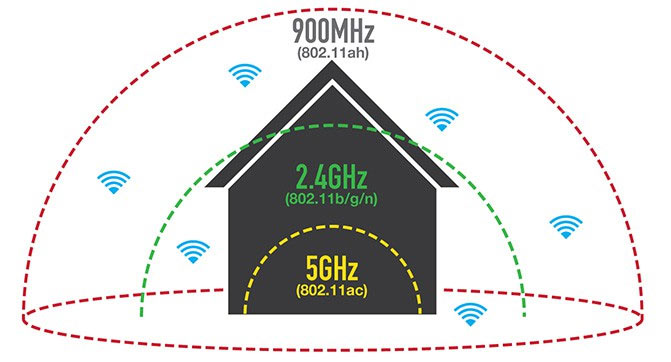The recently adopted Wi-Fi standard 802.11ah can bring back forgotten security problems.

As mentioned on Habré , the developers decided to please consumers with the new Wi-Fi protocol for the Internet of things. However, it is possible that to ensure safety in the process of using this product will be much more difficult than before.
The new protocol based on the 802.11ah standard from IEEE is known in the Wi-Fi Alliance circles as the Wi-Fi HaLow. It differs from the currently used Wi-fi, which is characteristic of most modern devices, by several key characteristics. First, it is a low-power protocol that will work in the range up to gigahertz. Secondly, the new product has a much longer range than the traditional Wi-Fi, and it is thanks to this feature that it will be extremely effective in applications that regulate the functioning of traffic lights and surveillance cameras in smart cities.
')
The new version of Wi-Fi can also be useful for connecting small, low-power gadgets, such as smart watches, fitness bracelets with other useful accessories and garments, to ensure communication with which Bluetooth is now used. The Wi-Fi Alliance, which approves devices that support Wi-Fi and is testing a new development, assures that it is an expanded and improved version of the existing protocol.
“Wi-Fi HaLow perfectly meets the unique needs of the Smart Home, Smart City and industrial markets due to its low energy consumption, ability to work through walls. Moreover, the range of the protocol significantly exceeds the performance of modern Wi-Fi, ”said Edgar Figueroa, President and CEO of the Wi-Fi Alliance.
But, as in the case of any new protocol or system, the introduction of Wi-Fi HaLow implies additional security challenges. One of the main problems in this context is to ensure reliable protection of all versions of the protocol. Device manufacturers are used to solving issues as they arrive, and in fact we have to deal with previously unknown vulnerabilities, which require hundreds and thousands of hours of work for security consultants to overcome. According to experts, Wi-Fi HaLow is no exception.
“While the standard protocol is good and safe, the launch of its new versions by various vendors can cause certain security problems. This applies to all protocols, ”says Cesar Kerrudo, technical director of IOActive Labs, who has conducted numerous studies on the security of various smart devices and the functioning of smart cities.
Many gadgets that are ready to work on the new protocol - will be freely available, at best, in a few years - are made by companies that do not pay enough attention to modeling potential threats, possible attacks, and other issues with which developers of hardware and software have It's not the first decade. But the attackers are at hand.
“While the standard protocol is good and safe, the launch of its new versions by various vendors can cause certain security problems.”
Kerrudo is sure that the increased range of Wi-Fi HaLow can also play a cruel joke.
“A solid range implies that criminals will have the opportunity to attack from a decent distance. For example, you may be a victim of a hacker using a friend’s gadgets living through three or more houses. And, much worse, if the new standard becomes generally accepted and appears in smart homes, smart cities and smartphones, the golden age will begin for hackers, because they will be able to hack anything, being very far from the crime scene, ”warns Kerrudo.
"For example, if an attacker in China wants to hack smart homes and cities in the US, it will be enough for him to gain access to several smartphones in the US, and with their help, manage the functions of the relevant buildings and settlements."
The emergence of new versions of a technology makes us think about additional aspects of security and confidentiality, and this trend also applies to the proliferation of devices not related to performing computational operations. The concept of voice control climate control, entertainment complexes and other systems at home has become a reality, as is the ability to send e-mail from the
“Nothing new, you will say, but until recently we did not have various technologies (protocols) intended for use in smart homes, cities, etc. When all these elements are interconnected and one technology is used in them, the field of activity of the intruders is significantly increased, ”summarizes Kerrudo.
In honor of the fact that the total capacity of the Dutch data center network in which we provide services has reached 5 Tbit / s (58 points of presence, including 36 points of exchange, in more than 20 countries and 4213 peer-to-peer inclusions), we offer dedicated servers for rent at unbelievably low prices.
Source: https://habr.com/ru/post/275093/
All Articles